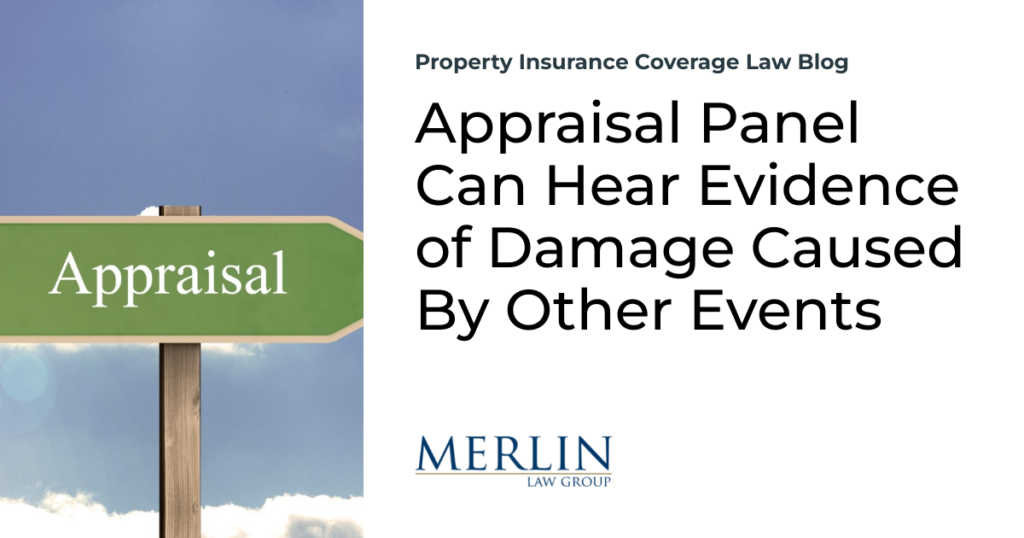Appraisal Panel Can Hear Evidence of Damage Caused By Other Events

Appraisal panels have few rules to follow about what they can and cannot consider in determining the amount of the loss. In a case recently decided,1 a policyholder refused to continue in an appraisal because the panel was presented evidence of a subsequent loss. The policyholder argued that this breached the appraisal agreement.
The appellate court held:
On appeal, Guzy acknowledges that to ‘measure the amount only of the covered loss required intentional knowledge of and exclusion of the second loss.’ Nonetheless, Guzy maintains that the appraisal agreement ‘prohibited’ consideration of the second loss evidence. Guzy’s position appears to be that the appraisal agreement both required the appraisal process to separate out the damage caused by the two losses and prohibited entirely consideration of the second loss.
We do not agree with this absurd result. The appraisal agreement requires that the ‘Award of Appraisal’ shall not consider damage caused by other events. As a matter of logic, to ensure that the award only covered damage caused by the November 2016 leak, the appraisal process necessarily must consider other possible causes for the damage claimed. As a matter of law, the Florida Supreme Court has stated that ‘an assessment of the amount of a loss’ necessarily includes a determination ‘whether or not the requirement for a repair or replacement was caused by a covered peril or a cause not covered.’ State Farm Fire & Cas. Co. v. Licea, 685 So. 2d 1285, 1288 (Fla. 1996). Guzy’s reading of the appraisal agreement contravenes this basic principle and is implausible.
The appraisal agreement thus required the appraisal process to determine the extent of the damage caused by the November 2016 loss, rather than any subsequent loss event….
This makes sense to me. Why should the panel award damages for events that happened before or after the one which is the subject of appraisal?
Thought For The Day
The will to win, the desire to succeed, the urge to reach your full potential… these are the keys that will unlock the door to personal excellence.
—Confucius
1 Guzy v. QBE Specialty Ins. Co., No. 22-cv-10668 (11th Cir. Feb. 2, 2023).







